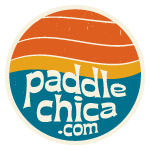Whether you have been a lifelong athlete, or have recently found yourself getting sporty, you have likely discovered that paddling has helped improve your life in countless ways. The most obvious improvements focus on the health benefits. Paddling is great cardio, makes you stronger and more fit and can even help you lose weight. But what about the other benefits? The focus, drive and determination that it requires to advance your paddling skills don’t simply stop when you get off the boat. Being an athlete develops a discipline that transfers to all aspects of your
“Coachability.” It’s a commonly used word in sports. We all seem to have an idea of what it means. Or do we? I decided that I wanted to get specific in what coachability truly is from a coach’s perspective. Paddlers often get labeled as “coachable” or not. “Coachable” means “able to be coached,” but what qualities does a coachable paddler have? What exactly earns someone this title? There are 5 main qualities of a coachable paddler. They are: humility, drive, focus, perseverance, and trust. Humility: Let’s use “Jane” as an example. She thinks that
Next survey: Why do you dragon boat? I’d love to hear what brought you to dragon boating and what keeps you paddling year after year. Please take a minute to fill out this short, five-question survey: Why Do You Dragon Boat? I look forward to reading your answers! Thank you in advance for taking the time to participate.
Dragon kisses. Butt blisters. Whatever you call them, they are a true pain in the butt. Literally. Nearly everyone gets them, yet no one likes to talk about them. If you have been rotating properly and using an effective leg drive, it is likely that you have experienced blisters on your rear end a few times. You start to feel that pain, at some point the skin rips open, and when you get in the shower you scream like a little girl when the water hits your rear end. Most all of
As a former teacher and a current coach, I have been fortunate enough to be a part of the learning process of individuals. Whether it is academic material or athletic movements, learning new things is a difficult endeavor which can be frustrating. When newbies come out to paddle for the first time, it is important for coaches and teammates to remember that for most people paddling involves completely new body movements. We grow up kicking or throwing a ball, running, jumping, etc. Not many of us were lucky enough to grow up with a paddle in
A Rookie’s Guide to The Dragon Boat World Championships in Welland: Wise Words from Veteran Paddlers
If you are a rookie to Team USA, or your own country’s national team, this guide is for you. After all of the preparation, Welland is just about in sight, which means at this point everything you’ve been doing for the last two years will soon come down to a few minutes of racing on dragon boat’s biggest stage. The physical training is tough, but practices have taken care of preparing the body. What about the other parts of World Championships – the parts that nobody tells you about? That’s
As a coach, hands down one of the most difficult things is selecting the race boat. On competitive teams, coaches spend countless hours reviewing data from fitness tests and time trials, as well as video, in order to determine what they consider to be the strongest boat. The coach’s goal is to win while creating a cohesive team that will function as one unit. If you aren’t selected for the race boat, it can be extremely disappointing and frustrating. As a coach, I have been the brunt of such frustrations. I
No one likes to sit on the bench while the rest of the team competes. Everyone wants to be in the race. So, should a racing team only consist of 20 paddlers in order to avoid having paddlers sit out? That doesn’t really make sense. Every team has some paddlers who sit out more often than they compete in races, but does this make them any less of a teammate than the race crew? Definitely not. The role of the reserve paddlers (often called subs or spares) is simply different from the
Have you ever wondered what is it like to train for hours, making sacrifices, pushing yourself to new levels while preparing yourself for the Dragon Boat World Championship? Team USA paddler Bob Mina recounts his experience. Since 2008, a morning of practice starts the night before. I have to pack three bags – one with dry clothes for the drive to work, one with the clothes I’ll change into AT work, and one with my run gear for any mid-day mileage I can fit in. I move out of the
As competitive adults in a competitive sport, we see paddlers of varying talents either develop into top-notch athletes or hamper their own progress. How is that an athlete with mediocre ability can develop into an excellent paddler, yet a paddler with incredible talent can stall their own achievement? First, let’s take a look at why athletes with average talent can do so well in their sport: 1) They work hard. This is worth repeating. They work HARD. Have you ever noticed that when things are simply handed to people, they do not tend to value

